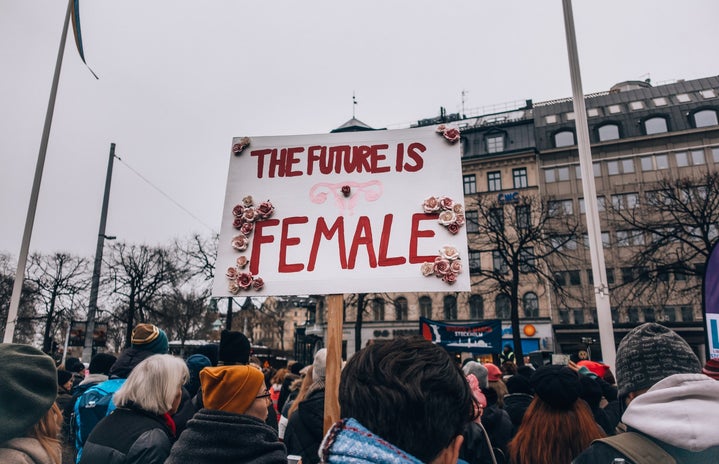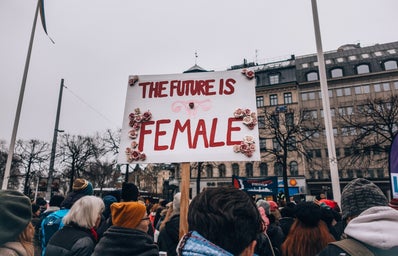In these tumultuous times, self-care has become more important than ever. The easing of lockdown restrictions after a year and the upcoming online exam season brings its own challenges which makes it more important than ever to make sure we check in with ourselves mentally and physically, mentally, and emotionally.
Self-care is a concept that has a unique, personal meaning to each individual, however, the most common perception of self-care is linked to products such as facemasks and candles. The self-care industry is now a vast $450 billion market, spanning several categories as consumers are taking a holistic approach using a variety of products together for maximum impact on their health and wellness.
With the mass marketisation and commercialisation of self-care, we forget its more political beginnings as a once-radical feminist idea and practice. Audre Lorde in her 1988 book, A Burst of Light, writes about the politics of self-care: ‘Caring for myself is not self-indulgence. It is self-preservation, and that is an act of political warfare.’
For many marginalised people to insist that you matter and are worthy of care in a world that is hostile and negates your identity, way of life and needs, is an act of defiance. Self-care is political warfare because it gives us the energy to resist. By stepping back to maintain our health we can continue to sustain our fight against systems of oppression in the long term by avoiding burnout. Self-care is political warfare because when we claim our bodies and space and time for ourselves we disrupt systems of powers such as capitalism and patriarchy where we are pressured into being productive and women are expected to look after others before themselves as women around the world conduct 76% of unpaid care work. For black women self-care is political because taking bodily autonomy is a ‘corrective to the failure of a white, patriarchal medical system and political act against racist and sexist medicine’
The issue with the mass commercialisation of self-care is that by equating our well being with the purchases we make, we are working against the very thing that it promotes. Self-care is supposed to help us resist the culture of self-criticism and value ourselves in a world that doesn’t value us, but instead, we have companies cashing in on our insecurities under the guise of helping customers care for and love themselves. We have moved on from Lorde’s idea of preservation and into improvement as companies give us more things we should be concerned with trying to fix, whether it be our fitness routines, eyebags, or hair in the name of self-care.
Furthermore, commercialisation means that self-care is becoming expensive and thus excluding those who are in need of it the most: those from marginalised racial, ethnic, sexual and gender identities. These groups are often live on lower income levels than others in society and don’t have the time nor means to invest in this form of ‘self-care’. Due to this, the movement is being dominated by affluent, middle class, white, straight women. Think about GOOP, the self-care and wellness brand founded in 2008 by Gwyneth Paltrow that has $27 ‘Psychic Vampire Repellant Spray’ and $80 Rose Quartz Water Bottle for sale on its website.
As self-care continues to dominate the public consciousness the danger is that it could be pushed ‘as a cheap replacement for social care.’ Andre Spicer in The Guardian mentions how ‘already many governments around the world are starting to focus their resources on promoting self-care.’ If not also supplemented by more funding and access to professional care it can be dangerous as it shifts responsibility from governments and it becomes an individual responsibility. Self-care is not a ‘magical bullet’ It needs to be sustained with investment from governments and stakeholders to fully realise its benefits for the public.
With the tumultuous politics of the last few years and the awakening of social consciences last May with the Black Lives Matter movement, the political roots of Lorde’s statements remain truer than ever. Practising self-care is vital for fighting for social change. So what is its future? Are we going to reclaim its political origins or is it going to continue to co-exist with its commercial counterpart? I don’t know. My research hasn’t provided me with any conclusive answers. But I do know that self-care is here to stay. Research shows that it is central to the lives of the ‘Net Generation’; we value wellness more than ever before and associate self-care with empowerment and escapism. I also know that self-care is a personal practice and we should take approaches that have a personal resonance with us. For me, it is Anushka Maheshwary’s understanding that ‘self-care also consists of building communities of solidarity and healing’. Much like Anushka, I believe that we should discover other ways of taking care of ourselves that are not grounded in the rhetoric of individualism and seek alternatives to the isolation of the self from the realm of the social and political that we often associate with self care and healing.



